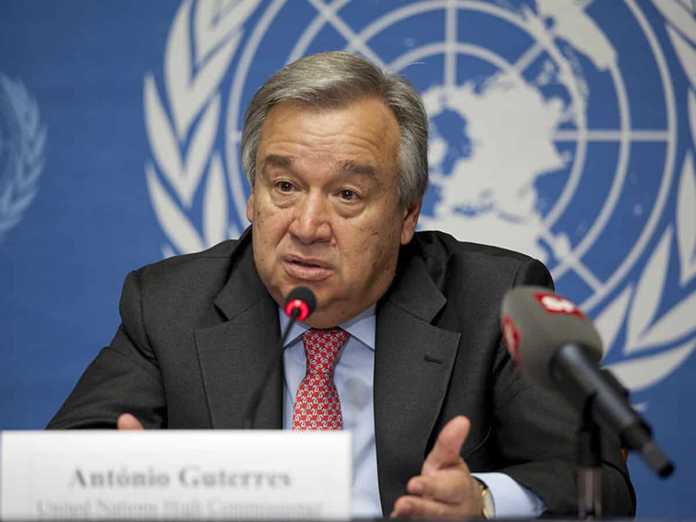The United Nations head has strongly condemned a Taliban ban on Afghan women working for the organisation.
Secretary General Antonio Guterres demanded Afghanistan’s rulers immediately revoke the order, saying it was discriminatory and breached international human rights law.
Female staff were “essential for UN operations” in the country, he said.
The Taliban have increasingly restricted women’s freedoms since seizing power in 2021.
There was no immediate word from their government on why the order had been issued. Foreign female UN workers are exempt.
The UN has been working to bring humanitarian aid to 23 million people in Afghanistan, which is reeling from a severe economic and humanitarian crisis. Female workers play a vital role in on-the-ground aid operations, particularly in identifying other women in need.
“Female staff members are essential for the United Nations operations, including in the delivery of life-saving assistance,” Secretary General Mr Guterres said in a statement.
“The enforcement of this decision will harm the Afghan people, millions of whom are in need of this assistance.”
He called on the Taliban to “reverse all measures that restrict women’s and girls’ rights to work, education and freedom of movement”.
Earlier, the UN told its Afghan staff – men and women – not to report to work while it sought clarity from the Taliban. Local women had been stopped from going to work at UN facilities in eastern Nangarhar province on Tuesday.
- ‘When I see the boys going to school, it hurts’
- BBC helps Afghan children banned from school
- Taliban to set new rules on women’s aid work, UN says
The UN mission had been exempt from a previous Taliban ban issued in December that stopped all NGOs using women staff unless they were health workers.
How health programmes in the country will be affected by the ban on UN staff remains unclear.
The ban is being seen as the most significant test of the future of UN operations in Afghanistan, and the relationship between the organisation and the Taliban government, which is not recognised anywhere in the world.
Since the Taliban’s return to power, teenage girls and women have been barred from schools, colleges and universities. Women are required to be dressed in a way that only reveals their eyes, and must be accompanied by a male relative if they are travelling more than 72km (48 miles).
And last November, women were banned from parks, gyms and swimming pools, stripping away the simplest of freedoms.
The Taliban have also cracked down on advocates for female education. Last month, Matiullah Wesa, a prominent Afghan campaigner for female education, was arrested for unknown reasons.
In February Professor Ismail Mashal, an outspoken critic of the Taliban government’s ban on education for women, was also arrested in Kabul while handing out free books.

